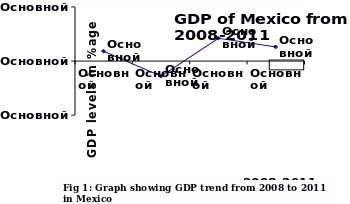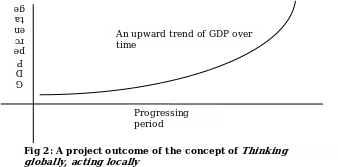Introduction
Mexico has covered good grounds in the last three years to warrant it the complement of being one of the most progressing countries. The effect of globalization has brought both positive and negative returns. For example, the country has been ranked among the top seven when in terms of Nestle production. On the same measure; however, Mexico’s population has quite often complained of this negatives agricultural policy.
How big is Mexico’s global market is and what product does it globalize?
Mexico has diversified its business operations and as a result, centered on both agricultural and engineering sectors. When it comes to agricultural production, it is globally known for potato and sugarcane farming. Taking sugar as an example, the country has become characterized by huge production that is exported to other countries in the world. Mexico has also played a key role in the industrial revolution with major engineering sectors such as electricity and gas production turning into commercial and large-scale production. The country has set itself as a major exporter of goods and services as economic activities and its wings have spread to the African continent, European Union, Asia, and America. Furthermore, it has made a mark as the largest importer and exporter in Latin America.
Does Mexico’s global market affect the economy?
As noted above, Mexico is highly reputed in export and import trade. The positive effects have been trickled into the country’s economy. It is currently ranked among the top 10 in some sectors.
How did it think globally and act locally?
Mexico has integrated factors of production with globalization. Besides, some of the global factors of production that may affect output have been considered, streamlined, and practiced in local conditions.
Analysis
The phrase, Think Globally, Act locally is attributable to widening thinking capacity. However, the adopted ideas are brought and applied at the local levels. A basic example would be the subject of global warming whereby local communities are motivated and enlightened on how to protect the ozone layer. The idea is replicated in management whereby effective global practices can be brought down to employees to help company growth. A typical example is in the management of organizational employees, whereby, managers ought to extract ideals in the international arena and try to fit them in their local situations. If Mexico wants to excel to the heights of America, Britain, and China, it must look at the ideals from multinational companies emanating from these countries and then fit them in the management of her issues. As shown in the figure below, Mexico is yet to become a stable economic hub. However, it can economically perform well if it were to embrace the positive ideals of globalization.

Localization should not be construed to mean putting everything into the local situation, but at least making the global impacts a long-term goal. The degree of this localization should vary from one case to another or should be dependant on a particular situation. For example, environmental management has become a worldwide outcry. However, not all issues raised in the global arena can fit into local situations. In some cases, planting a million trees per month may not work wonders, and what matters is how this global idea can be reformatted to benefit the local or particular situations.
The practice of globalization and acting locally should be selective, that is, only the value-adding components should be considered in the local situations. Mexico as a growing economy should not take everything at face value, and what should be practiced should only be that which can add value to the economy. Most importantly, the global idea should be adopted as a long-term goal, not as a short-term measure.
If strategic measures were to be taken before embracing globalization fully, it is possible that the trend in the development of a country like Mexico would be a steady upward flow. The graph below shows a possible outcome of the economic growth of Mexico in the use of Thinking globally and acting locally:

Conclusion and recommendations
Mexico as a global economy needs to adopt strategies that would not only benefit it globally but also put its local communities into effective operations. As already discussed, Mexico as a growing country should adopt a measure of taking what is important from the international scene and practice it locally. However, this should be done with caution lest negative effects are absorbed into the economy
Firstly, it is paramount to note that top leadership in Mexico ought to understand the local situations. For example, it will b imperative to set priorities for the country before adopting positive elements of globalization. Secondly, leaders need to understand the changing trends in terms of global production, that is, monitor the world development to understand the course it will take. Third, it is paramount for top leadership to understand the positive and negative impacts of the changing political and economic trends to know what to take and reject. Fourth, the leadership of the country should understand the benefits derived from the globalization practices used by developed countries, or better still, the impacts that these adopted issues have had in countries that they have been used.
Fifth, it is of great importance for the country’s leadership to choose what is good and bad from what is practiced in the global market. Sixth, the leadership should correlate the global situation and relative benefits that can be derived from local communities’ needs. Seventh, only the positive things should be deduced leaving what is likely to destroy the local situations. Eighth, it is important that the country’s management evaluate what it has taken to understand the long-term effect of the adopted global ideas.
Bibliography
- Bruce, Anne. Building a high morale workplace. Ohio: McGraw-Hill Professional, 2002
- Harvey, Jean. Managing service delivery process: Linking strategy to operations. Milwaukee: American Society for Quality, Quality Press, 2005
- Liu, Gary. “Think Globally, Act locally.” The Link, 2005, 33-34.